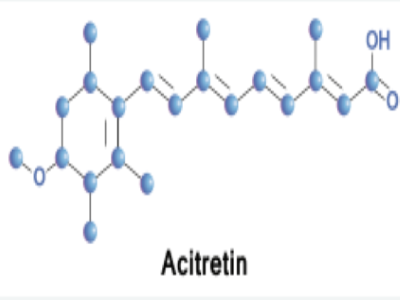By Ted Rosen, MD, FAAD, Editor-in-Chief
Oral Acitretin for Multikinase Inhibitor-induced Hand-foot Skin Reaction
Dermatologists are increasingly being asked to suggest treatments for cutaneous adverse effects associated with an ever-expanding set of cancer chemotherapeutic agents.
The field of oncodermatology has only a few well-known experts, and therefore effective treatment of such skin disorders may prove difficult for the average dermatologist.
One such frustrating reaction is the painful, hyperkeratotic hand-foot syndrome associated with multikinase inhibitors (MKI). The latter agents are used to manage a wide variety of neoplasms, including (but not limited to) colon, kidney, and thyroid. The potentially disabling hand-foot syndrome may occur in 60% to 70% of those receiving multikinase inhibitors, especially cabozantinib, regorafenib, sorafenib, and sunitinib.1
We usually try the obvious: urea or lactic acid-containing creams, keratolytics, and potent topical steroids. However, this condition is frequently and stubbornly refractory to such typical interventions.
A recent small-scale (N = 8) retrospective analysis may have well discovered a reasonable off-label intervention that has a chance of affording some relief: oral acitretin.2 Given in doses of 20 to 25 mg daily, this agent provided substantial relief for 7 of 8 patients experiencing this distasteful adverse effect of multikinase chemotherapy.
It should be noted that the hand-foot skin reaction appeared, on average, about 17 days after initiation of MKI treatment. It took, on average, 28 days to reduce the severity of the hand-foot skin reaction, but with a wide range of 8 to 55 days. So, patience may be required and the acitretin dose may possibly need upward adjustment.
I have personally done this treatment successfully several times and hope further large-scale studies will conclusively verify this pearl.
References
- Belum VR, Wu S, Lacouture ME. Risk of hand-foot skin reaction with the novel multikinase inhibitor regorafenib: a meta-analysis. Invest New Drugs. 2013;31(4):1078-1086. doi:10.1007/s10637-013-9977-0
- Said JT, Singer S, Iannattone L, et al. Outcomes of Acitretin Treatment for Refractory Multikinase Inhibitor-Induced Hand-Foot Skin Reaction [published online ahead of print, 2022 May 11]. JAMA Dermatol. 2022;e221425. doi:10.1001/jamadermatol.2022.1425.


